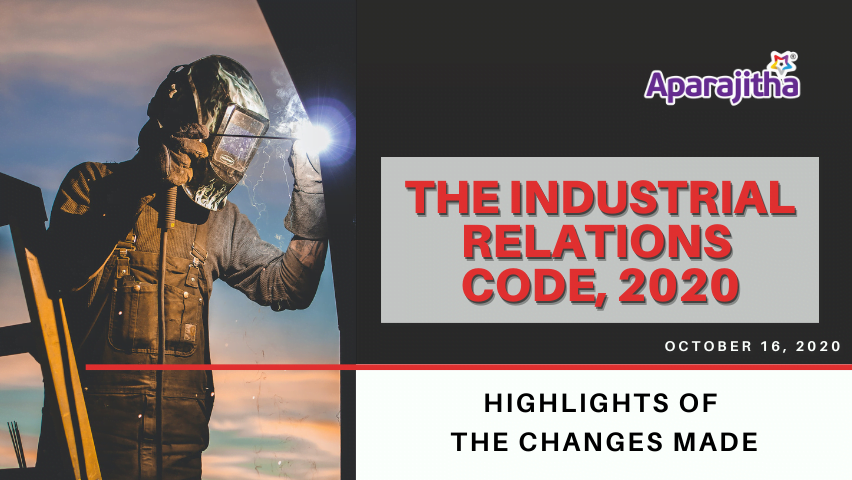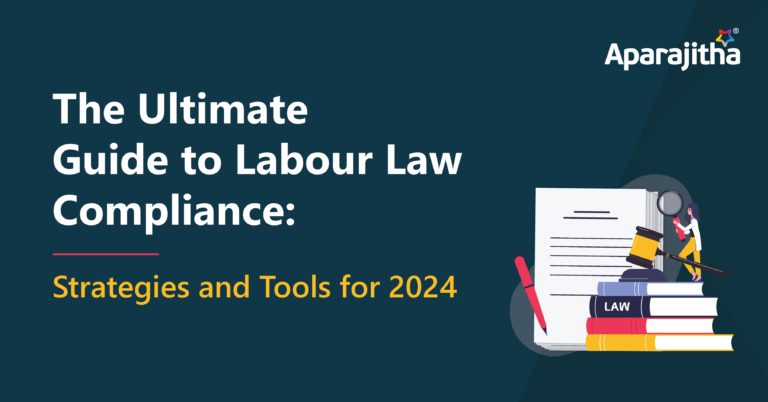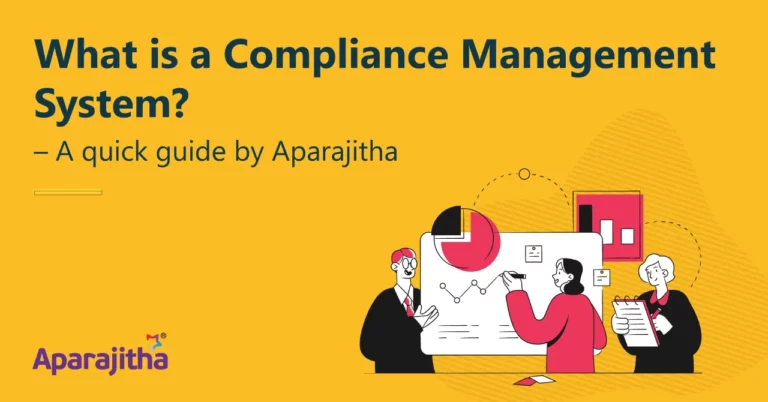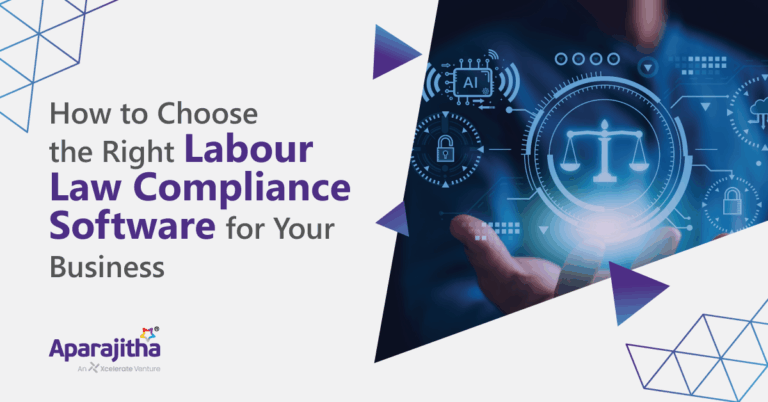THE INDUSTRIAL RELATIONS CODE, 2020
HIGHLIGHTS OF THE CHANGES MADE
INDUSTRIAL DISPUTES
1 The definition of the term “industry is modified in line with the Apex court verdict in Bangalore Water Supply and Sewage Board Case.
2 Domestic services and the Institutions engaged in charitable social or philanthropic service are excluded from the term “industry.
3 Termination of the service of a worker on the ground of continued ill health is considered as retrenchment.
4 Concerted mass casual leave also be construed as strike.
5 The total number of members of the Grievance Redressal Committee increased from six to ten.
6 Notice shall not be required for effecting change in case of emergent situation requiring change of shift or shift working otherwise than (except in accordance with standing orders in consultation with Grievance Redressal Committee).
7 Prohibits strikes and lockouts in any industrial establishment without giving notice of 14 days.
8 Notice of strike or lockout validity is amended from 6 weeks to 60 days.
9 Wilful go slow shall be construed as unfair labour practice on the part of worker.
10 Time period for filing a grievance application is reduced from three years to one year.
11 Time period for raising industrial dispute before the conciliation officer is reduced to 2 years from 3 years.
- Factories mines or plantations shall obtain permission from the appropriate Gov, for retrenchment or lay off if 300 or more workers.
- Only tribunal has the power to entertain any suit in relation to dispute concerning trade unions and the members
- The employer shall contribute an amount equivalent to 15 days wages for every retrenched worker towards the workers reskilling fund.
TRADE UNION
1 Special provision introduced for recognition of trade union.
2 If more than one trade unions are functioning the trade union having 51% or more workers support shall be recognized as sole negotiating union.
3 If more than one trade unions are functioning and if no trade union is having 51% or more workers support negotiating council to be formed(i.e.,@1 representative for each 20% members.
4 Only one third of the total number of office bearers of the union or five office bearers whichever is lower can be from outside the industry with which the union is connected.
STANDING ORDERS
1 Chapter IV concerning the Standing orders shall apply to the industrial establishment in which 300 or more workers are employed (currently it is 100 or more)
2 Central Government shall draft model standing orders (currently both central and state Govt., has this power).
3 The central Govt., would be the appropriate Govt., for telecommunication insurance and banking companies.
4 Employers shall consult the trade unions or negotiating union council before submitting the draft standing orders to the certifying officer.
5 Certifying officer to look in to the fairness or reasonableness of the provisions of any standing orders.
6 Certifying officer shall certify the standing orders within 60 days and in case of failure to certify within the time limit then it will be deemed to have been approved.
7 Standing orders already certified shall continue to be in force.
OTHER CHANGES
1 Empowers the app Govt., to appoint officers for holding enquiry and impose penalty in certain contraventions punishable with fine up to Rs. 50000.
2 Central Govt., would be the appropriate Govt., for metro railways.
3 The Central Government will be the appropriate Govt., for the establishment of contractors serving to the establishment undertakings etc., of Central Govt.,
4 To provide penalty for different types of violations commensurate with gravity.
5 There is an increase in Penalty in case of violation of the provisions of this code.
6 Provision for compounding of offence is introduced.
To subscribe to our YouTube Channel and webinar sessions, click the below link.
https://www.youtube.com/c/AparajithaCorp
For updated news bulletin and free demo, mail us marketing@aparajitha.com
Navaneethan
Associate Business Manager
Consultation and Audit Services
Disclaimer: The article represents the opinions of the author and the author is solely responsible for the facts, cases, legal or otherwise reproduced in the article.







